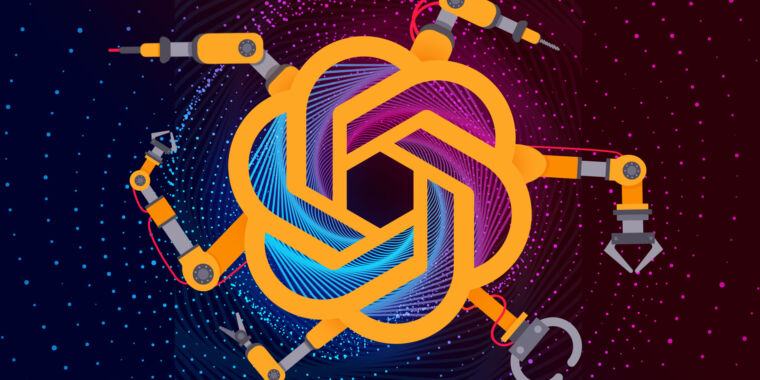- Recent technological advancements have made it possible to run AI models on devices, known as edge AI.
- Engineers from Carnegie Mellon University, University of Washington, Shanghai Jiao Tong University, and OctoML have collaborated to run large language models on smartphones, PCs, and browsers.
- If this research can be implemented in everyday use, it could greatly expand the applications of generative AI.
- Currently, most AI models run in the cloud, requiring users to rent servers from providers like Azure, AWS, and Google.
- The ability to run AI models on devices could potentially reduce costs and increase accessibility for users.
AI is revolutionizing the art world by providing innovative tools that enhance design, aesthetics, and exploration.
Summary: Artificial intelligence (AI) may be an emerging technology, but it will not replace the importance of emotional intelligence, human relationships, and the human element in job roles, as knowing how to work with people and building genuine connections remains crucial. AI is a tool that can assist in various tasks, but it should not replace the humanity of work.
AI models like GPT-4 are capable of producing ideas that are unexpected, novel, and unique, exceeding the human ability for original thinking, according to a recent study.
Many decisions and actions in the modern world are recorded and analyzed by large models, but the challenge lies in interpreting the outputs and understanding how the models arrive at their decisions. If we can make these models interpretable, it could lead to revolutionary advancements in AI and machine learning.
AI has the potential to revolutionize healthcare by shifting the focus from treating sickness to preventing it, leading to longer and healthier lives, lower healthcare costs, and improved outcomes.
Architects should embrace artificial intelligence (AI) in order to enhance productivity, creativity, and the overall quality of their designs, according to Patrik Schumacher, principal of Zaha Hadid Architects. He believes that AI tools can provide a substantial boost to the architectural industry and that concerns about job redundancy are unfounded, as AI will contribute to higher quality work and more innovative design options.
The use of AI in the entertainment industry, such as body scans and generative AI systems, raises concerns about workers' rights, intellectual property, and the potential for broader use of AI in other industries, infringing on human connection and privacy.
Generative artificial intelligence, particularly large language models, has the potential to revolutionize various industries and add trillions of dollars of value to the global economy, according to experts, as Chinese companies invest in developing their own AI models and promoting their commercial use.
AI has the potential to transform numerous industries, including medicine, law, art, retail, film, tech, education, and agriculture, by automating tasks, improving productivity, and enhancing decision-making, while still relying on the unique human abilities of empathy, creativity, and intuition. The impact of AI will be felt differently in each industry and will require professionals to adapt and develop new skills to work effectively with AI systems.
AI can improve businesses' current strategies by accelerating tactics, helping teams perform better, and reaching goals with less overhead, particularly in product development, customer experiences, and internal processes.
Using AI to streamline operational costs can lead to the creation of AI-powered business units that deliver projects at faster speeds, and by following specific steps and being clear with tasks, businesses can successfully leverage AI as a valuable team member and save time and expenses.
Meta is developing a new, more powerful and open-source AI model to rival OpenAI and plans to train it on their own infrastructure.
As generative AI continues to gain attention and interest, business leaders must also focus on other areas of artificial intelligence, machine learning, and automation to effectively lead and adapt to new challenges and opportunities.
AI integration requires organizations to assess and adapt their operating models by incorporating a dynamic organizational blueprint, fostering a culture that embraces AI's potential, prioritizing data-driven processes, transitioning human capital, and implementing ethical practices to maximize benefits and minimize harm.
AI is revolutionizing scientific research by accelerating drug discovery, predicting protein structures, improving weather forecasting, controlling nuclear fusion, automating laboratory work, and enhancing data analysis, allowing scientists to explore new frontiers and increase research productivity.
Artificial intelligence (AI) will be highly beneficial for executives aiming to save money in various sectors such as banking, insurance, and healthcare, as it enables efficient operations, more accurate data usage, and improved decision-making.
Artificial Intelligence (AI) has the potential to improve healthcare, but the U.S. health sector struggles with implementing innovations like AI; to build trust and accelerate adoption, innovators must change the purpose narrative, carefully implement AI applications, and assure patients and the public that their needs and rights will be protected.
Artificial intelligence (AI) will continue to evolve and become more integrated into our lives in 2024, with advancements in generative AI tools, ethical considerations, customer service, augmented working, AI-augmented apps, low-code/no-code software engineering, new AI job opportunities, quantum AI, upskilling for the AI revolution, and AI legislation.
Artificial intelligence (AI) applications for your computer, such as image scaling, 3D scanning, video editing, and speech recognition, are now available in free software programs thanks to open-source developments and advancements in AI models and training data analysis.
The restaurant industry is increasingly incorporating artificial intelligence (AI) to reduce costs, enhance productivity, and improve customer experience.
The cofounder of DeepMind, Mustafa Suleyman, predicts that interactive AI will be the next phase of artificial intelligence, where machines perform multi-step tasks by talking to other AIs and even people, signaling a new era of technology.
Open source and artificial intelligence have a deep connection, as open-source projects and tools have played a crucial role in the development of modern AI, including popular AI generative models like ChatGPT and Llama 2.
